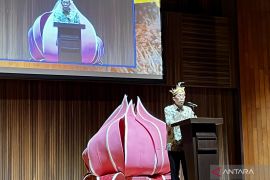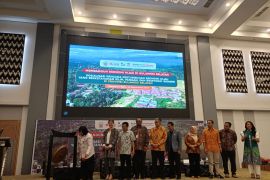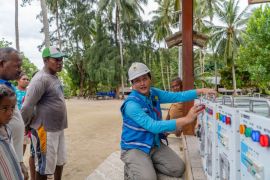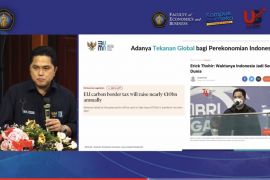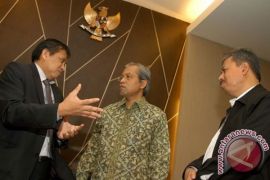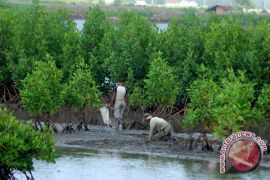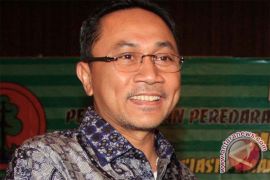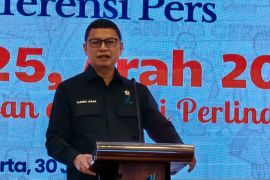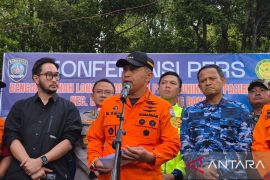"The trend and science tell us that we cannot wait another generation (until a Rio+40) before acting - the green economy is our only future," the young people stated in a Bandung Declaration issued on the final day of the conference.
They referred to the green economy as "the only integrated framework that is truly sustainable - placing human well-being, social equity and environmental protection on an equal footing."
The Tunza International Children and Youth on the Road to Rio+20 Conference was organized by Indonesia and UNEP (United Nations Environment Program (UNEP).
Under the theme "Reshaping our Future through a Green Economy and Sustainable Lifestyles", the conference explored the role of young people in sustainable development and provide youths inputs for the upcoming United Nations Conference on Sustainable Development, also known as Rio+20, which will be held in Rio de Janeiro, Brazil, in June 2012.
One of the main outcomes of the conference was a "Bandung Declaration" in which the world`s youths made their statement on sustainable development in the run-up to Rio+20.
The Bandung Declaration identifies access to green jobs as critical for achieving a sustainable transition to the green economy.
"In the next ten years, as the world`s population passes 7
billion, we need to provide jobs for more than 1 billion young people - employment that will both enable them to live productive and worthwhile lives and to contribute to the transition to a just green economy," the Declaration states.
Indonesian Environmental Affairs Minister Gusti Muhammad Hatta, on the sidelines of the Tunza Conference, stated the younger generation played an important role in the green economics programs.
"The younger generation will inherit this habitat, and they must have awareness of the importance of protecting and preserving the environment for the future generations," the minister said.
Minister Muhammad Hatta also reiterated the government`s commitment to implementing the green economics.
President Susilo Bambang Yudhoyono had instructed the application of an economic development system by using environmentally friendly energy since last year, and its implementation had reached 48 percent, Minister Muhammad Hatta said.
"So, 48 percent of the power energy being produced, have been using environmentally friendly energy," he said.
"For examples in Bali and East Nusa Tenggara (NTT). In NTT, we have made lamps using solar energy, and it`s one of the regions supporting the green economy programs," he said.
The Tunz conference is a follow-up on the decision adopted at the 1992 Earth Summit in Rio de Janeiro, Brazil and the 2002 World Summit on Sustainable Development, in Johannesburg, South Africa, which states that the views of children should be incorporated in decisions regarding the environment.
Topping the agenda after almost a week of animated and active debates, panel discussions and cultural exchanges, was how to fast forward a Green Economy.
Many of the participants to the Tunza conference underlined their concern over jobs, but not just any job: Jobs that are fulfilling, worthwhile, decent and contribute to an acceleration of sustainable development.
Adeline Tiffanie Suwana, a 14 year-old from Indonesia, as quoted in a UNEP press release, said, "As children, we can plant trees, clean rivers and beaches, but we cannot stop industries from polluting our rivers, we cannot force them to adopt green economy. We want policies and laws that will make industries sustainable."
According to latest estimates, nearly 40 per cent of the world`s unemployed,over 80 million people, are between the ages of 15 and 24.
Achim Steiner, UN Under-Secretary General and UNEP Executive Director, who attended the meetings and debates, said "Too many of our youth feel a sense of powerlessness and frustration with the `way things are`. Leaders should listen more carefully and attentively to them and ensure that their willingness to become involved is supported."
According to him, not only do young people have ideals, solutions and energy but they are often free from some of the finger pointing, political gamesmanship and vested interests of the past that can derail a fresh future.
The Bandung Declaration also lays out children and youths commitment to several action plans over the next nine months or so to Rio+20.
They will among other things to lobby their governments to make Rio+20 Earth Summit a top priority; to adopt more sustainable lifestyles and reduce their ecological footprints; and support the work of young scientists and entrepreneurs that is geared towards green economy solutions.
Environment Minister Muhammad Hatta said the government hailed the results of the Tunza International Children and Youth.
He said that the declaration was in line with the development in Indonesia which was being directed to environment friendly energy based development.
Indonesia is home to the world`s third-largest area of tropical forests and is the largest producer of palm oil.
President Yudhoyono had announced his pledge at the G-20 Summit in Pittsburgh in 2009 that Indonesia would voluntarily reduce its greenhouse gas emissions by 26 percent from business-as-usual levels by 2020.
"I do not want later to have explain to my granddaughter Almira, why we, during our time, could not save our forests and the people whose livelihoods depended on them. I do not want to have to tell her the sad reality that our tigers, rhinoceroses, and orangutans vanished like the dinosaurs," he stated in Forest Indonesia Conference organized by CIFOR (Center for International Forestry Research) in Jakarta recently.
(T.F001/HAJM)
Reporter: by Fardah
Editor: Priyambodo RH
Copyright © ANTARA 2011

